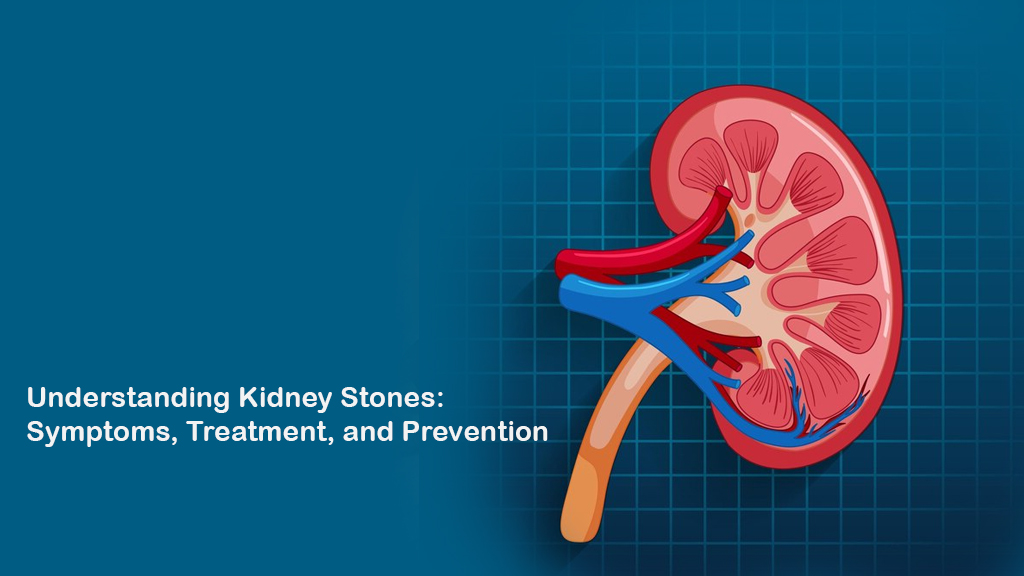Kidney stones, though small in size, can cause significant pain and discomfort. These hard deposits form in the kidneys and can lead to various symptoms. Timely intervention and preventive measures are crucial to manage kidney stones effectively. In this blog post, we will explore the symptoms, treatment options, and preventive measures associated with kidney stones.
Symptoms of Kidney Stones:
Recognizing the symptoms of kidney stones is the first step towards seeking proper medical attention. Common symptoms include severe pain in the back or side, radiating to the lower abdomen and groin. Individuals may also experience blood in the urine, frequent urination, and a persistent urge to urinate. Nausea, vomiting, and fever may accompany these symptoms, indicating a possible infection.
- Extracorporeal Shock Wave Lithotripsy (ESWL):
This non-invasive procedure uses shock waves to break down kidney stones into smaller fragments, making it easier for the body to pass them naturally. ESWL is recommended for smaller stones and is often performed on an outpatient basis.
- Ureteroscopy:
In this procedure, a thin,rigid or flexible tube equipped with a camera is inserted through the urethra and bladder to reach the location of the stone. The urologist can then remove or break down the stone using laser energy. Rigid Ureteroscopy (URS) is particularly effective for stones located in the ureter and flexible Ureteroscopy ( RIRS) is used for stones in kidney.
- Percutaneous Nephrolithotomy (PCNL):
PCNL is a minimally invasive surgical procedure where a small incision is made in the back, and a nephroscope is used to directly access and remove the kidney stone. This technique is employed for larger stones or when other methods are ineffective.
Prevention of Kidney Stones:
Preventing the recurrence of kidney stones is equally important as treating the current episode. Here are some key measures to prevent the formation of kidney stones:
- Stay Hydrated:
Adequate water intake is crucial in preventing the formation of kidney stones. It helps dilute the substances in urine that lead to stone formation. Aim to drink at least 8-10 glasses of water daily.
- Dietary Changes:
Certain dietary modifications can play a significant role in preventing kidney stones. Reduce salt intake, limit animal protein, and be cautious with foods high in oxalates, such as beets, chocolate, and nuts.
- Calcium Intake:
Contrary to popular belief, a moderate amount of calcium in the diet can actually prevent kidney stones. Consult with the urologist to determine the appropriate calcium intake for your specific case.
- Medication:
Depending on the type of kidney stones, the urologist may prescribe medications to prevent their recurrence. These medications may include diuretics, citrate supplements, or allopurinol.
Summary
Effective management of kidney stones involves a combination of prompt medical intervention and lifestyle adjustments. If you’re experiencing symptoms associated with kidney stones, consult the best urologist in Bangalore for a thorough evaluation and personalized treatment plan. By adopting preventive measures and seeking timely treatment, you can alleviate the pain and discomfort associated with kidney stones and promote overall kidney health
Dr Amit B
Consultant Urologist
